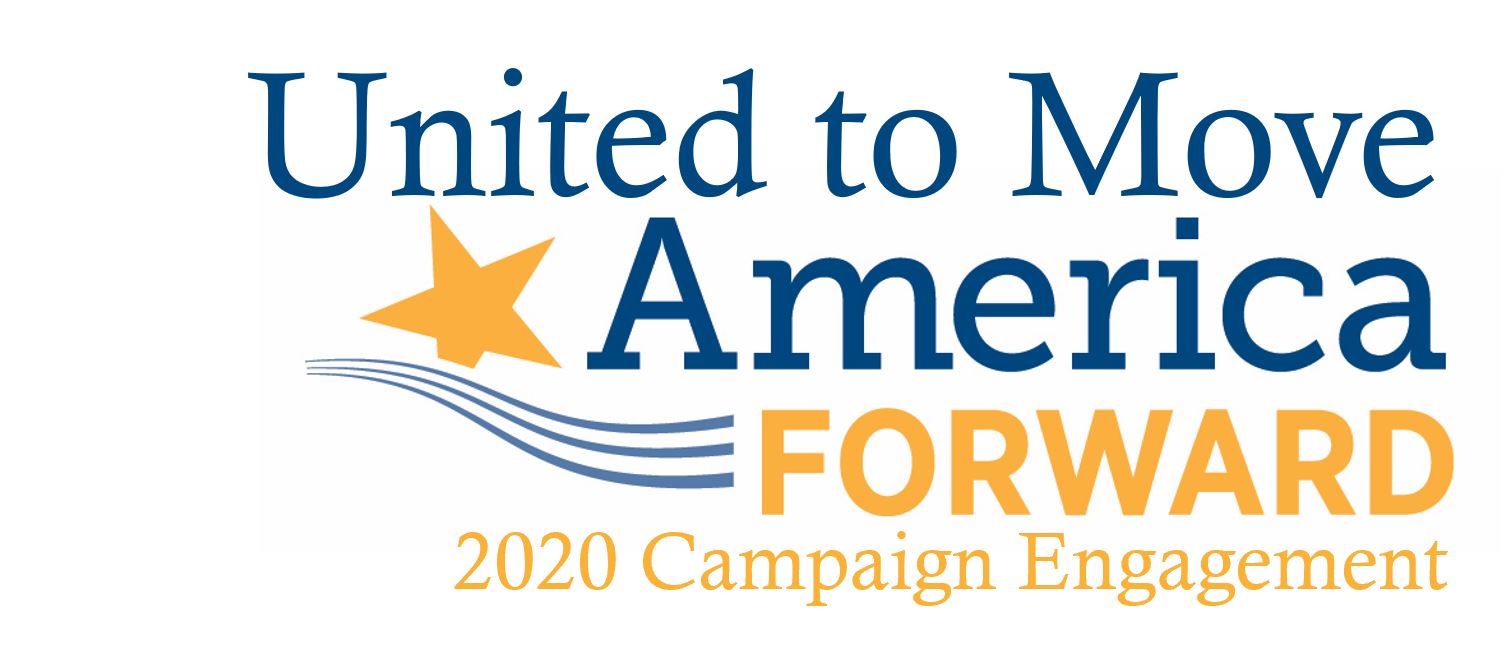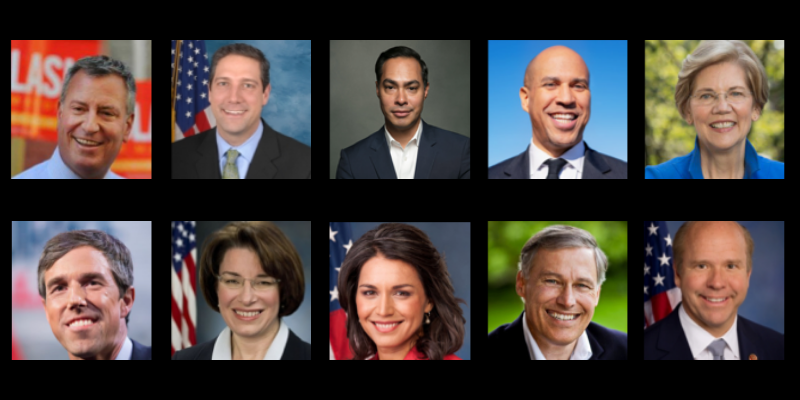
By Deborah Smolover. Deborah Smolover is a Managing Partner of New Profit and Executive Director of America Forward.
This week, 20 Democratic presidential candidates will debate over two nights in Miami. Based on debates of the past, we can predict many of the questions the numerous moderators will ask. But this week we’ve been asking ourselves a different question: what would the debate look like if our community of social entrepreneurs was posing questions to the candidates?
For the last several months, through America Forward’s 2020 campaign engagement effort United to Move America Forward, we have been hosting roundtable discussions and listening carefully to our Coalition and partner organizations working in over 1,500 communities across the country implementing innovative and effective solutions to our country’s most intractable social problems. These conversations have surfaced the challenges faced by students, opportunity youth, and families struggling to make ends meet, while also underscoring the innovative, evidence-based solutions that are expanding opportunity, increasing equity, and improving lives every day. Through these conversations, our Coalition of social entrepreneurs has been calling out areas where the federal government has impeded progress with outdated policies. It also has been shedding light on the federal policies currently in place that help social entrepreneurs achieve positive impact, and highlighting many additional ideas that, if implemented, could exponentially scale positive impact.
As we settle in to watch the first debates of the 2020 race, we offer a list of the top 10 questions we believe our community of systems change-makers would like to hear candidates answer:

-
- In America today, 15 million children live in poverty in the wealthiest nation in history. The percentage of Americans in poverty under age 65, based on earnings and wages, has barely budged in half a century. Only three percent of the children who grow up living persistently in poverty go on to graduate from college. What will you do to disrupt this cycle of poverty, and grow opportunity for children who most need it?
- Our Coalition recognizes that the federal government alone is not equipped to solve all the problems our communities face. That said, Pew polling shows public confidence in the federal government this year is at an all-time low. What steps will your Administration take to change the way government operates?
- The federal government allocates over $1.5 trillion for social services annually. Based on available evidence, evaluations and outcome data, we are only able to assess the impact for those served for less than one percent of these dollars. How would you make the federal government more evidence-based, and more oriented toward results for people and families served?
- 1 in 4 young Americans say they would serve or participate in a national service program, given the opportunity, and 75 percent of Americans support national service as a strategy to address unmet needs in our communities. Service opportunities through AmeriCorps, the Peace Corps, YouthBuild, and other organizations are limited by existing funding, and demand for service opportunities hugely outpaces available slots. How will your Administration encourage, incentivize and support a broader number of Americans to participate in national service in order to contribute to solving today’s big problems?
- The federal dollars spent annually across the social service, health, workforce, and education sectors are split across hundreds of siloed funding streams. The vast majority of these dollars are not deployed in a manner that incentivizes innovation, that rewards flexibility, or that encourages collaboration with the private and philanthropic sectors. How can the federal government better incentivize unlikely partnerships, including between different levels of government, between public and private entities, and across sectors?

- Fewer than half of young children living in poverty qualify as “kindergarten-ready” at age five, compared with three-quarters of children from moderate and high-income families. In the face of these inequities, how can our educational systems – from early childhood through postsecondary systems – better equip all students to succeed in a rapidly evolving global information age?
- Young Americans tend to vote in far lower numbers in recent elections, compared with the rest of the electorate. How will your Administration ensure that young people have a real voice in policymaking?
- Students pursuing post-secondary credentials today face many economic barriers beyond rising tuition. Over half hold jobs, 42 percent are at or below the poverty line, and only 13 percent live on campus, which means many face rising housing prices. Finally, nearly 30 percent have children – these students are disproportionately non-white, and only one-third of these students attain a post-secondary credential within 6 years of enrolling in their chosen program. How would you help these students afford the housing, transportation, child care and other expenses necessary to graduate?
- 87 percent of workers believe it will be essential for them to receive training and develop new job skills in order to keep up with changes in the workplace. Federal funding for job-training has not kept up with our rapidly changing economy and is often not well aligned with the skills employers need today. What would you do to ensure federal investments in workforce development keep our workforce competitive?
- An estimated 1 in 3 American adults has a criminal record. Nearly 60 percent of individuals with criminal records remain unemployed one year after release. What will you do to help open the doors of economic opportunity to those with past justice system involvement?
As we tune in tonight, we challenge all the presidential candidates to embrace innovative solutions to address our nation’s most pressing problems, to reward results, and to partner with the social entrepreneurs and organizations that are making a real change every day in communities across America. This week’s debates are a great place to start the conversation.

#AmericaForward2020
Leave a Reply
You must be logged in to post a comment.